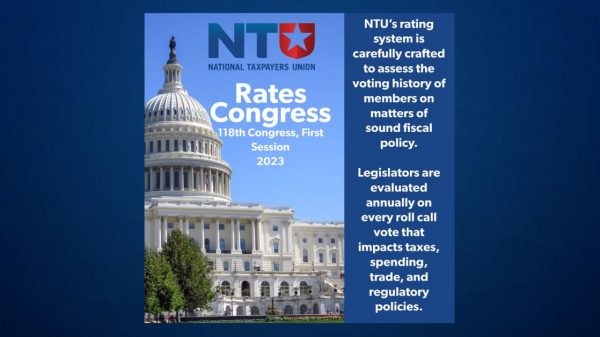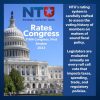Because of the COVID pandemic, companies have had to reexamine their policies, including if their employees should head into the office or work from home.
U.S. Rep. Mark Takano, D-Calif., has offered a proposal to reshape the 40-hour week to only 32 hours. Takano has reeled in more than 15 co-sponsors, mostly from the left-wing of the Democratic caucus, to change a Depression-era law known as the “Fair Labor Standards Act,” which put into place the 40-hour workweek.
Supports of the bill say the proposal would free up more time for workers to spend with family and doesn’t prohibit employees from working longer than 32 hours a week, noting that, after 32 hours, overtime will be paid.
“Another mandate where Democrats and Congress tell companies what they must do,” said David Williams, the president of the Taxpayers Protection Alliance.
Williams said he likes the idea of a 4-day work week but asked why must Congress involve itself in an area where the marketplace can dictate what happens.
Supporters say there are many benefits of a 4-day work week. In March 2020. a Gallup poll found that workers on 4-day work weeks reported lower levels of burnout. Companies could benefit through increased sales, decreased worker burnout and lower turnover, among other positives. Supporters of the bill say studies have shown that at some point, productivity decreases as the number of hours worked increases.
Takano’s 4-day work week bill has some support. including from unions like the AFL-CIO and the Service Employees International Union (SEIU).
The idea behind a 5-day workweek is to achieve the same results in fewer hours so people have more time to pursue other interests, spend time with loved ones and manage their lives. But is a new law from Congress needed to revamp the work week? Not really, insists the American Enterprise Institute. (AEI)
A survey from AEI showed that workers value flexibility in employment above virtually any other consideration. Workers want a better balance between their work and family lives, and they are willing to sacrifice financially, as much as $30,000 in annual salary, in order to get it.
AEI noted with a labor shortage, new laws aren’t needed and many companies are looking to satisfy current employees by creating a work balance so they will stay instead of leaving to find another job.
In the meantime, Takano’s bill has stalled before the U.S. House Energy and Commerce Committee where it’s been since the summer. So far, there is no companion bill over in the U.S. Senate.




















